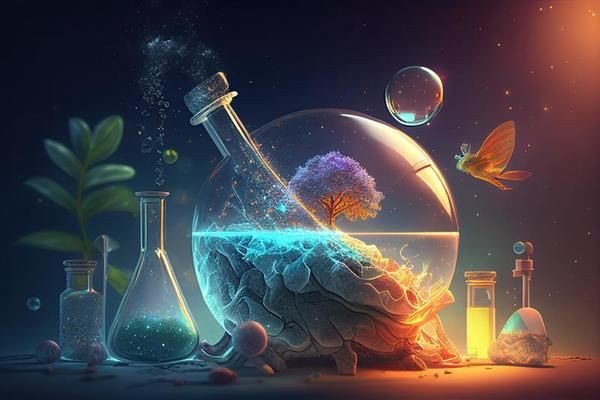
Life sciences, encompassing the study of living organisms and their interactions, are crucial for understanding the complexities of life and addressing global challenges. This article explores the importance of life science education, its evolving methodologies, and its impact on scientific discovery and societal advancement.Life sciences encompass a broad range of disciplines, including biology, genetics, ecology, and physiology. These fields study the structure, function, growth, and evolution of living organisms, providing insights into the intricate web of life. From the cellular level to entire ecosystems, life sciences offer a comprehensive understanding of the natural world, paving the way for innovations in medicine, agriculture, and environmental conservation.Life science education plays a pivotal role in fostering curiosity and developing critical thinking skills. By engaging students in hands-on experiments, field studies, and interactive learning experiences, educators ignite a passion for scientific inquiry. Understanding the principles of life sciences equips students with the ability to analyze complex problems, make informed decisions, and contribute to advancements in health, technology, and sustainability.The traditional methods of teaching life sciences are evolving to incorporate innovative approaches that enhance learning outcomes. Digital tools, virtual labs, and simulation software allow students to visualize complex biological processes and conduct experiments in a virtual environment. Project-based learning and interdisciplinary approaches connect life sciences with other fields such as engineering and computer science, fostering a holistic understanding of scientific concepts.Life science research is at the forefront of scientific innovation, driving discoveries that transform our understanding of biology and medicine. Breakthroughs in genomics, biotechnology, and molecular biology have revolutionized healthcare, leading to the development of personalized medicine, targeted therapies, and advanced diagnostic tools. Research institutions and universities play a crucial role in advancing life science knowledge, fostering a culture of inquiry and collaboration.Genetics and biotechnology are integral components of life sciences, offering groundbreaking solutions to medical and agricultural challenges. The Human Genome Project, completed in 2003, mapped the entire human genome, providing a blueprint for understanding genetic diseases and developing precision medicine. In agriculture, genetic engineering has led to the creation of genetically modified crops with enhanced resistance to pests, diseases, and environmental stresses, ensuring food security for a growing global population.Ecology, a sub-discipline of life sciences, focuses on the interactions between organisms and their environments. Environmental science integrates ecological principles with human activities, addressing issues such as climate change, habitat destruction, and biodiversity loss. Life science education emphasizes the importance of sustainability, encouraging students to develop solutions that balance human needs with environmental conservation.Public health initiatives rely heavily on life science research to prevent and control diseases, promote healthy lifestyles, and improve quality of life. Epidemiology, a branch of life sciences, studies the patterns and causes of diseases in populations, informing public health policies and interventions. Vaccination programs, disease surveillance, and health education campaigns are rooted in life science principles, highlighting the discipline's impact on global health.Lifelong learning is essential in the rapidly evolving field of life sciences. Continuing education opportunities, such as workshops, online courses, and professional development programs, enable scientists, educators, and healthcare professionals to stay updated with the latest advancements. Lifelong learning fosters a culture of innovation and adaptability, ensuring that life science professionals are equipped to address emerging challenges and contribute to scientific progress.The future of life science education lies in preparing the next generation of scientists to tackle complex global issues. Integrating cutting-edge technologies, fostering interdisciplinary collaboration, and promoting diversity and inclusion are key strategies for advancing life science education. By nurturing a passion for discovery and equipping students with critical skills, educators can inspire future leaders in science, medicine, and environmental stewardship.In conclusion, life science education is fundamental to understanding the natural world and addressing pressing global challenges. From innovative teaching methods to groundbreaking research, life sciences play a vital role in advancing knowledge, improving health, and promoting sustainability. By fostering curiosity, critical thinking, and lifelong learning, life science education prepares students to become informed citizens and future innovators, contributing to a better and more sustainable world.